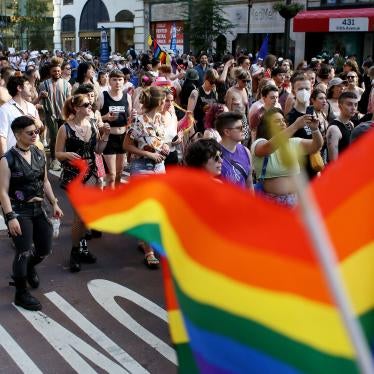The British government has committed to a 10-year strategy to end discrimination against “female same-sex couples” seeking fertility services.
The first ever Women’s Health Strategy For England, published by the UK’s Department of Health and Social Care, includes language supporting reproductive rights for lesbian, bisexual and queer (LBQ+) women. It commits the government’s health department to improving transparency and removing discriminatory policies to ensure “female same-sex couples are able to access [National Health Service] NHS-funded fertility services in a more equitable way.”
In October, 2021, campaigners Megan and Whitney Bacon-Evans launched a legal case against their local NHS board, stating that its fertility policy discriminated against lesbians. In their postcode, same-sex female couples seeking one cycle of NHS-funded in vitro fertilization (IVF) are required to prove infertility by self-funding 12 rounds of artificial insemination, including 6 in a clinical setting, costing approximately £26,000. For heterosexual couples, the requirement to prove infertility is attestation of two years of unprotected sex.
The new strategy removes the requirement for self-funding, and states that female same-sex couples can expect NHS coverage to start with 6 cycles of artificial insemination.
Still, there is little clarity as to when the strategy will take effect. “Some queer couples told us this week they have already been put on fertility waiting lists for 2023, others were told they still don’t qualify,” Bacon-Evans told Human Rights Watch.
Also, the strategy is silent on “single women who want to start a family,” an issue highlighted by experts who submitted to the strategy process, which could potentially discriminate against both heterosexual and queer single women. As the strategy commits the department to administer care for women regardless of non-clinical factors, such as relationship status, single women should be covered.
The strategy also does not define “same-sex” or “couple.” It remains unclear if partners must be married or in a civil partnership, and if treatment will be available to LBQ+ couples in which one or both partners are transgender, non-binary, or gender non-conforming.
Authorities should extend non-discriminatory access to fertility treatment to single women and all LBQ+ couples, regardless of gender identity or expression. They should also be protected from non-clinical barriers to fertility services. One immediate opportunity comes as the National Institute for Health and Care Excellence updates its fertility assessment and treatment guidelines.









